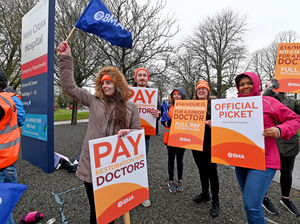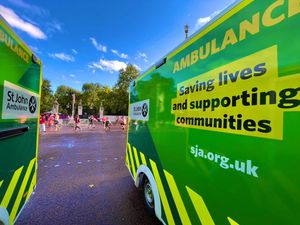NHS issue major warning ahead of longest EVER strike action by doctors in history
The region's hospitals are braced for junior doctors to take the longest single consecutive strike in the history of the NHS.

British Medical Association (BMA) junior doctors are tomorrow set to walk out for six days in a major escalation of their ongoing pay dispute with the government.
It comes after a three day strike in December which saw 1,936 outpatient appointments or elective procedures cancelled at The Royal Wolverhampton NHS Trust, Walsall Healthcare NHS Trust, Sandwell and West Birmingham Hospitals NHS Trust and Dudley Group NHS Foundation Trust.
Data released by NHS England last week also showed that across the four trusts, junior doctors were on strike for a total of 1,835 shifts.
Ahead of the walkout local health bosses had warned of 'significant' disruption for both the December strike and the forthcoming January action.
The latest walkout begins at 7am tomorrow and will continue until 7am on Tuesday next week.
NHS National Medical Director Professor Sir Stephen Powis has warned six days of strikes will have an "enormous impact".
He said: “This January could be one of the most difficult starts to the year the NHS has ever faced.
“Six consecutive days of industrial action comes at one of our busiest periods – the action will not only have an enormous impact on planned care, but comes on top of a host of seasonal pressures such as covid, flu, and staff absences due to sickness – all of which is impacting on how patients flow through hospitals.
“Our colleagues across the health service are doing their very best for patients every day with extensive preparations in place, but there’s no doubt they are starting 2024 on the back foot – not only will action impact next week, it will continue to have a serious impact in the weeks after, as we recover services and deal with additional demand.
“However, I cannot stress enough that people who need care must come forward as they usually would – using 999 and A&E in life threatening emergencies and 111 online for everything else.”





